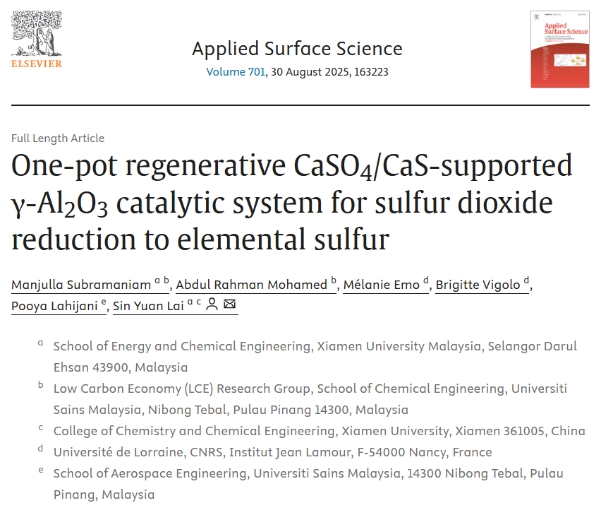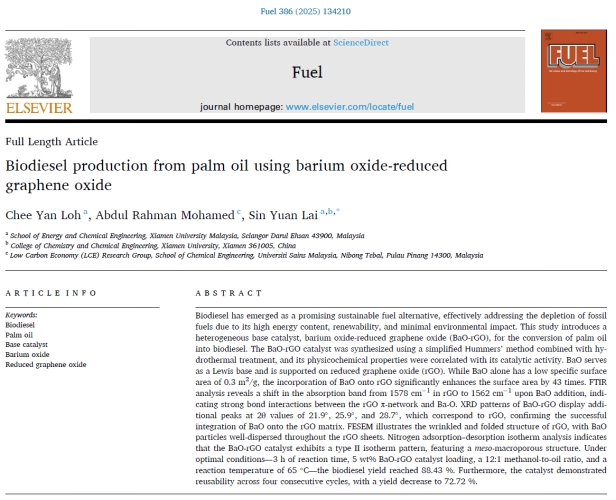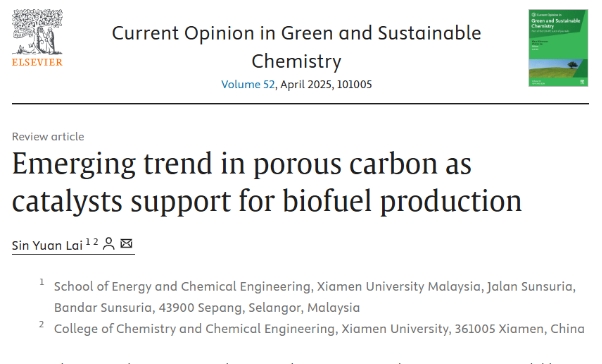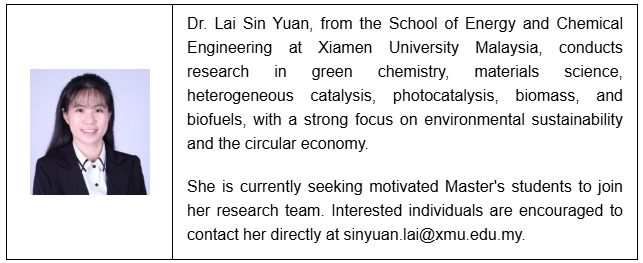Dr. Lai Sin Yuan and Team Shine in Sustainable Catalysis and Biofuel Research with Three New Publications
The school congratulates Asst. Prof. ChM. Dr. Lai Sin Yuan from the School of Energy and Chemical Engineering for her recent contributions to sustainable chemistry, as reflected in her publications in three prominent journals.

Dr. Lai Sin Yuan's first work has recently been featured in Applied Surface Science, a top-tier SCI Q1 journal (impact factor 6.3). In the paper One-pot regenerative CaSO4/CaS-supported γ-Al2O3 catalytic system for sulfur dioxide reduction to elemental sulfur, Dr. Lai and her collaborators developed an innovative method using waste chicken eggshells to create a highly efficient system that reduces sulfur dioxide - a major air pollutant - into elemental sulfur. Their regenerative catalytic process achieved an impressive 85.60% sulfur yield, offering a promising solution for cleaner air. This project was a collaboration with experts from Universiti Sains Malaysia and Université de Lorraine, France, and received funding from Malaysian Research University Network (MRUN) and Xiamen University Malaysia.

In Fuel, another prestigious journal with an impact factor of 6.7, Dr. Lai Sin Yuan's team, with her student Loh Chee Yan as the first author, published a breakthrough on biodiesel production from palm oil. Their study, Biodiesel production from palm oil using barium oxide-reduced graphene oxide, introduced a powerful catalyst that achieved a biodiesel yield of 88.43%. What sets this research apart is its focus on sustainability - this catalyst also showed great reusability, making it a strong candidate for the future of renewable energy.

Dr. Lai Sin Yuan's expertise was also sought after for a review article in Current Opinion in Green and Sustainable Chemistry (impact factor 9.3). Her paper, Emerging Trends in Porous Carbon as Catalyst Supports for Biofuel Production, dives deep into the potential of porous carbon materials, such as biochar and activated carbon, in biofuel production. These materials, with their high surface area and tunable properties, hold great promise for enhancing catalytic performance and increasing the efficiency of biofuel production - key steps toward a more sustainable energy future.

